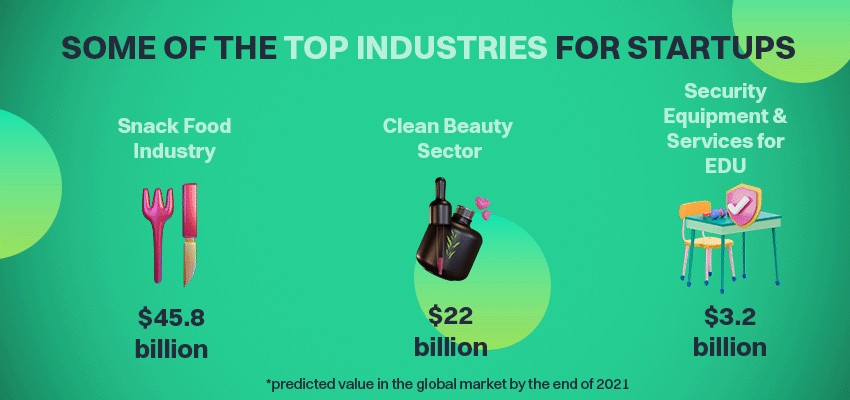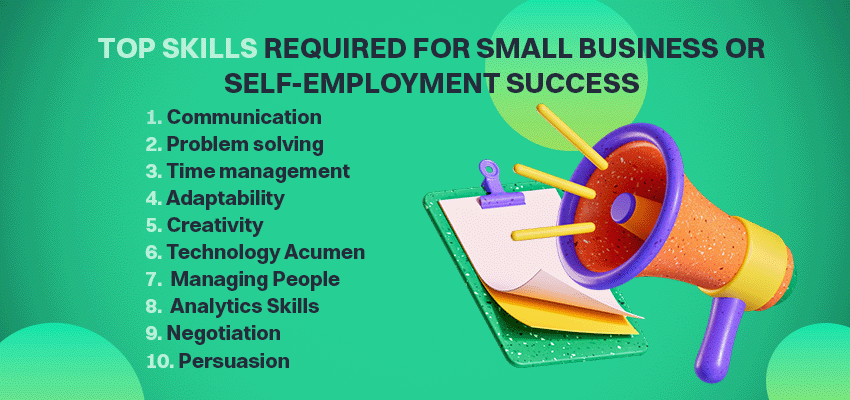Startups are popular places to work, providing exciting opportunities for career growth, and are often popular with Gen Z in the workforce.
With limited resources and budgets, startups also promote the development of hard and soft skills, knowledge, and experiences. But, how do you forge your way forward in a startup environment and carve out your dream career path?
Throughout this article, we’ll go through the benefits of working at a startup, how to get hired and how to build a startup career path.

A startup is a new company in the beginning stages of doing business. Its founders are entrepreneurs who have a unique product or service they want to develop.
Startups often have limited budgets and resources. Their financial funding typically comes from their founders and/or venture capitalists. So, a startup will typically have fewer employees taking on multiple roles and responsibilities to bring their business enterprise to the market.
Scaleups are one step beyond. It’s when startups have a marketable product to convince further investment and allow them to scale up with more employees and other resources. The two can be considered different business stages.
The people working at a startup aren’t there because of steady working hours, job stability, or a big paycheck. For them, it’s about passion for projects and the opportunity to grow a business from the ground up. While money is always an important consideration, the values, ideals, and dreams of a startup should be the driving force to working in one.

Develops your skillset
As mentioned, limited budgets and resources of startups mean they can afford to only hire a few employees, which leads to multitasking and role diversity.
For example, at a tech startup, a programmer might be responsible for handling business processes with on-premise ERP and pitching to investors.
Therefore, employees need to be resourceful in order to cope with the different tasks assigned to them and a startup provides opportunities to experience different roles while developing your skillset.
For example, you could learn about marketing, product design, and sales all in the space of a month.
Skills that you may develop through hands-on experience include:
- Critical thinking
- Problem-solving
- Project management
- Time management
- Role-specific skills like marketing, design, coding, and sales
Opportunities for growth
Startups grow rapidly, and when they do, the initial employees are often promoted to manage recruits and continue building upwards. Because of this, startups provide great opportunities for career growth.
For example, imagine a startup has 15 employees, growing to 1,000 employees within two years. Those initial 15 employees are rewarded for their performance by promotion to vital managerial positions.
While some startups can and do indeed fail, if you’re looking for a career path that will enable you to climb quickly up the career ladder, startups are a smart choice. The key here is therefore to be open and willing to take on any challenge that is thrown your way.
Let’s take a look at the main benefits of working at a startup (and potential scaleup).
Greater work flexibility
Generally speaking, startups offer more flexible working environments. Employees often take ownership of the tasks needed to complete, regardless of when they work.
There are usually only a handful of employees in a startup, so there’s no strict hierarchy, meaning better interpersonal relationships and communication. For example, you could change your working hours to spend time with family or work remotely, using conference calls on android devices to stay in touch.
Working in a startup is beneficial to anyone who struggles with the stringent nine-to-five world.
Greater recognition and appreciation
Startups are more interested in passion and performance than formal qualifications.
As long as you’re working hard and moving in the right direction for your career, you’ll be rewarded for your performance at work. Every employee wants recognition and appreciation.
It’s one of the key benefits that you have working at a startup.
How to get hired at a startup
Here are the steps to choose your startup and nail your job interview.

Decide on a startup field
Startups are more than simply Bay Area tech companies – there are startups in almost every industry.
In this first step, decide on the startup field that you want to go into. Is it tech? Design? Clothing?
While you can apply to any business to develop an understanding of startups, applying to one in the industry you want is the first step you take on your startup career path.
Consider your skillset
If you’re applying to a tech startup, do you have the relevant tech skills?
Consider your strengths. It’ll highlight where you’ll be a good fit and what roles you should be thinking about applying for.
Research startup companies
Once you know your strengths, look to see where you’ll thrive.
Research different startup companies and see which ones appeal to you. Do you want to apply for a scaleup or a company that’s taking its first few baby steps? Where do you think you’ll fit in best and learn the most?
This step depends highly on you. You may want to move across the world to start your new job, or you may be looking for remote working opportunities. If this is the case, look for companies that offer the benefit of transparency in the remote workforce so that you’re connected and visible to the team.
Whichever it is, with the wide range of startups available, there’s likely to be one that fits your needs perfectly.
Use your network
Startups don’t function like traditional companies, so why would their recruitment process? Use your network to reach out to companies. Using personal branding, like a well-developed profile on LinkedIn, can land you a job.
You could go through social media, like Facebook or Twitter. It shows persistence and passion that could get your foot through the door. However, always check if there’s a formal application process they might prefer you use.
Prepare for your interviews
This one is straightforward. Prepare thoroughly for your upcoming interview.
Research the company and the founders. Knowing the relatively recent roots of a startup will help you stand out from the crowd. Understanding their business model is an added advantage.
For example, not being able to answer what is CRM integration at a startup developing third-party tools to integrate with CRMs, would not be a good look.
Also, a startup is looking for passionate and enthusiastic individuals. Don’t be afraid to share ideas or express your personality. Above all, be yourself. Authenticity is key when hiring a handful of employees to add to your team.

How to build a startup career path
When it comes to defining your career path, focus on your needs and desires; whether you want to work as a recruiter, developer, or product manager. Forging your career requires you to map out your goals and expand your knowledge.
Below we go through five steps to help you do just that.
1. Map out a career path
The first step to carving out a career path is creating the map to get you there. It doesn’t need to be a stringently detailed five-year plan accounting for each and every day. Instead, think about the end goal. Where do you want to be? What’s your dream job?
Work backward from here. Define the steps you need to take and the skills you need to develop to get you there.
For example, you may want to start your own business, like a SaaSan SaaS SEO company, to scale up SaaS businesses. Working at startups is just how you learn about making your vision a reality. Alternatively, you might one day want to be a designer or developer. What steps and skills do you need to get you there?
It doesn’t matter what your end goal is. All that matters is that you can draw a line from where you are to where you want to be. This map will likely change over time. You might take different opportunities or reevaluate your goals. That’s perfectly normal. Life is about change, so don’t worry if your career path also does.
2. Evaluate yourself
When businesses ask what the voice of the customer is, they’re looking to evaluate customer opinions on their products, services, and brand. In the same way, consider and evaluate your strengths, weaknesses, and experiences.
It’s vital for building your career path. You have to understand where you are now to know how to get to your destination.
Be truthful and thorough. You’ll need to develop new skills, gain new experiences and improve your weaknesses as you move along your career path. Being open with yourself is vital to dealing with any gaps or flaws that you may have.

3. Set achievable goals
While thinking big is the mentality of many startups, ambitious career goals can sometimes be difficult to achieve. Therefore, you need to set small, achievable goals to guide you towards the main prize.
For example, if you want to compete in a marathon, you don’t start by running 26 miles. You start with a few hundred meters and build-up, ensuring good running form and hitting milestones like 5 miles, 10 miles, and 15 miles.
Setting small, attainable goals like this will keep you moving towards your bigger goal. As it’s easier to reach, it provides you with a constant feeling of progress. It’s essential to stay motivated as you move along your career path.
Ensure that your milestones are achievable and not overly challenging. If they’re too difficult to hit, you may need to change your approach. If you’re struggling, consider sharing your goals with coworkers as a way of holding yourself to account.
4. Expand your skills, knowledge, and experiences
When you mapped your career path and evaluated yourself, you identified skills, knowledge, and experiences that you lack. Now comes the tricky part of developing them to help you move along your career journey.
Take advantage of the resources you have available to improve yourself.
For example, if you want a leadership role, read the best project management books, take online courses and learn from coworkers.
The employees at startups are diverse; ranging in ages, backgrounds, knowledge, and skillsets. They are essential sources of experience and can be vital to expanding your business capabilities.
Instead of waiting for chance encounters or passively learning new things, approach coworkers or identify potential mentors who can help you. It could be someone who has taken the same journey as the one you’re just starting or a co-worker who has a wealth of knowledge and experience they can pass on to you. Even entrepreneurs use mentors.
Don’t wait for opportunities to come to you. Startups are a mix of skills, experience, and knowledge. Be proactive in your approach.

5. Network for visibility
Networking is a lifelong task. It’s an essential element to expanding your circle and learning about new people and opportunities. Understanding different departments, roles, and companies can help direct your path and provide solid links to move along your career roadmap.
Build your network by attending workshops, sitting with different colleagues at lunch, or interacting with people online. Meeting people might offer new opportunities or be the key to unlocking your future career goals.
Put yourself on people’s radar and develop strong relationships to build a career path in a startup.
A career path isn’t made in a day
Career paths are tricky. They don’t always go where you want them to go, and sometimes they take you somewhere you never expected. And that’s especially true for startups that quickly sprawl into multinational organizations, like Facebook or Google.
Small companies have versatile and flexible employees who need to take on multiple tasks and roles to achieve business aims. You’ll be able to develop your skills, experiences, and knowledge to forge ahead in your career making startups the best workplace for you.
However, you need to evaluate yourself and decide what the future holds. With startups in almost every industry and a wide range of businesses available, you have to define your end goal and set targets to reach it.
Expand your network and be open to new possibilities. Consider seeking out a mentor to help you achieve your aims and reevaluate your roadmap as you progress. Change is an inherent element of life, and you may also find your goals altering over time.
Nobody can forecast the future, but you can use data, like a WFM call centre does, to build a career path for yourself. It’s the first step to establishing your future within a startup or scaleup.
Grace Lau – Director of Growth Content, Dialpad
Grace Lau is the Director of Growth Content at Dialpad, an AI-powered cloud PBX for a small business platform for better and easier team collaboration. She has over 10 years of experience in content writing and strategy. Currently, she is responsible for leading branded and editorial content strategies and partnering with SEO and Ops teams to build and nurture content. Here is her LinkedIn.
